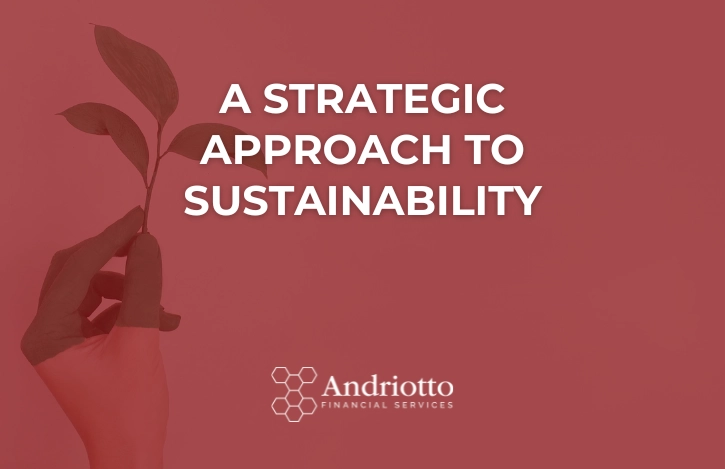Sustainability often challenges companies to address numerous issues simultaneously, resulting in dispersed efforts with limited impact. To enhance the effectiveness of sustainability strategies, a focused approach is essential. A framework employing four lenses—business value, stakeholder influence, science and technology, and purpose—offers a comprehensive method for prioritisation. These lenses ensure that strategic efforts align with business goals, stakeholder concerns, scientific data, and organisational values.
This framework empowers organisations to manage external pressures while maintaining internal priorities. By applying these lenses (Figure 1), companies can allocate resources efficiently and achieve meaningful sustainability outcomes.
Figure 1. The fours lenses
Source: Harvard Business Review (2024)
When applied effectively, each lens in the framework highlights distinct sustainability issues. To gain a clearer understanding of the issues most relevant to your organisation, consider these guiding questions and potential tools (Table 1). Focus your sustainability strategy on those issues that align at the intersection of all four lenses.
Table 1. Discover the focus of your business
Source: Harvard Business Review (2024)
-
The Business Value Lens: Prioritising Financial Impact
Sustainability initiatives that align with financial performance often gain the most traction. The business value lens identifies issues that influence a company’s bottom line, encouraging investments that generate measurable returns. For instance, Walmart’s focus on achieving “zero waste” not only improved its environmental impact but also reduced costs, supporting its low-price value proposition.
This lens enables organisations to identify win-win opportunities where sustainability efforts enhance profitability. By mapping sustainability issues to enterprise value drivers, companies can uncover both obvious and hidden benefits. For example, improving employee retention in the pharmaceutical sector—a material issue recognised by the Sustainability Accounting Standards Board (SASB)—can yield significant financial value.
-
The Stakeholder Influence Lens: Understanding External Expectations
Stakeholders, including NGOs, investors, and customers, shape the operating environment for businesses. Engaging with these groups helps companies identify emerging issues and adapt their strategies accordingly. This lens considers not only stakeholder preferences but also their potential actions.
Stakeholder engagement can inspire innovation and drive change. For example, Eversource, a utility company, collaborated with a climate activist group to address methane emissions. This partnership resulted in new technologies, legislative changes, and sustainable heating solutions, showcasing the value of proactive stakeholder dialogue.
-
The Science and Technology Lens: Leveraging Data for Clarity
Data provides critical insights to prioritise sustainability efforts amidst competing demands. Companies often face numerous information requests from stakeholders, making it vital to use data-driven methods to identify the most pressing issues.
Scientific analysis can highlight areas of significant impact. For instance, life cycle assessments may reveal the environmental trade-offs of different practices, guiding companies towards more sustainable solutions. This lens ensures that decisions are informed by evidence, rather than solely by stakeholder perceptions or regulatory pressures.
-
The Purpose Lens: Aligning with Organisational Values
Purpose-driven organisations are better positioned to integrate sustainability into their core strategies. The purpose lens encourages companies to consider what they stand for and how their actions align with their mission. This alignment fosters credibility and trust among stakeholders.
A clear sense of purpose also helps organisations navigate tensions between competing priorities. It provides a guiding principle for decision-making, ensuring that sustainability efforts remain consistent with long-term goals.
Integrating the Four Lenses
Effective sustainability strategies address issues that intersect across all four lenses. This integration allows companies to balance external pressures, internal priorities, objective data, and stakeholder perceptions. It also helps organisations allocate resources to initiatives with the greatest potential for impact.
Keurig Dr Pepper provides an example of this integrated approach. While data suggested focusing on coffee cultivation practices, stakeholder concerns about pod waste prompted the company to address this issue as well. By responding to perceptions and leveraging data, the company aligned its sustainability efforts with both external expectations and internal priorities.
Overcoming Common Challenges
A common pitfall in sustainability strategies is overextending efforts across too many issues. Materiality matrices, often used to prioritise ESG concerns, can become overloaded with topics, diluting focus. Limiting priorities to a manageable number—ideally three to six—can enhance strategic effectiveness.
Balancing external and internal perspectives is another challenge. While stakeholder input is valuable, overemphasis on external demands can lead to reactive strategies. Conversely, ignoring external pressures risks reputational damage and missed opportunities. The framework’s dual focus ensures a balanced approach.
Driving Meaningful Outcomes
A strategic approach to sustainability requires careful prioritisation and resource allocation. By concentrating on the intersection of business value, stakeholder influence, science and technology, and purpose, organisations can achieve significant results. This framework not only enhances operational efficiency but also strengthens stakeholder relationships and aligns actions with long-term goals.
***
Sustainability is most impactful when it is both focused and integrated into a company’s strategy. A strategic approach to sustainability, combined with applying the four lenses, ensures that efforts are both purposeful and effective. This approach drives meaningful change while creating value for businesses and society alike.
Source: Harvard Business Review (2024)
At AFS, we are passionate about fostering innovation and empowering ambitious minds to flourish. Our mission is to provide best-in-class financial services for traditional and crypto deals, exploit European grants, and use quantitative methods to improve clients’ performance. We aim to help our customers unlock their full business potential.
Let’s unlock your enterprise’s full potential together!
Get in touch at [email protected].


